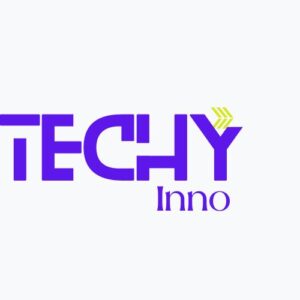Artificial Intelligence (AI) has already revolutionized industries worldwide—from smart chatbots and AI-powered recommendation systems to advanced medical diagnostics and autonomous vehicles. Still, the reality is this: today’s AI technology is only scratching the surface of its full potential.
Imagine AI systems enhanced by quantum computing—capable of performing millions of complex calculations in seconds, detecting hidden patterns that classical computers cannot, and solving optimization challenges that overwhelm even the most powerful supercomputers. This groundbreaking innovation is known as Quantum Machine Learning (QML)—the next frontier of AI. This blog explores how QML is evolving, why it matters, and how it might reshape industries in ways we are only beginning to imagine.
What Is Quantum Machine Learning?
In simple terms, QML merges AI with the extraordinary power of quantum mechanics. Moreover, traditional AI depends on classical computing—binary systems that process information using 0s and 1s. However, Quantum computing on the other hand uses qubits. This can exist in multiple states simultaneously through superposition and interact in unique ways via entanglement.
This means quantum algorithms can handle massive datasets and perform parallel computations at speeds, unimaginable for classical machines. When applied to machine learning, QML doesn’t just make AI faster—it makes it smarter, capable of uncovering hidden patterns and complex relationships that traditional systems cannot detect.
Would you trust a quantum-powered AI to diagnose your health condition more accurately than a doctor?
Why QML Is Trending in 2025?
QML has moved from theory to practical experimentation. Let’s look at some of the most exciting innovations shaping the conversation today:
1. Smarter Chip Design
Researchers recently used QML to design next-generation microchips. Importantly, they encoded data into quantum states and applied advanced machine learning algorithms, therefore; boosting performance upto 20% compared to classical model of computing. Furthermore, this innovation opens the door to quantum-optimized microchips, powering everything from smartphones and high-performance laptops to self-driving cars and autonomous vehicles.
2. Optimization Problems Solved in Seconds
Financial firms, logistics companies, and energy providers often face complex problems that take classical computers hours—or even days—to process. Conversely, QML solves these challenges in minutes or even seconds, delivering faster trading insights, smarter supply chain solutions, and more efficient energy grid optimization.
3. Quantum-Enhanced Natural Language Processing (NLP)
Natural Language Processing (NLP) powers the tools like ChatGPT. But training large AI models requires massive amounts of time and energy. QML streamlines NLP by accelerating training and improving efficiency, making AI conversations more natural, nuanced, and context-aware. With QML, future chatbots could truly understand human context, tone, and ambiguity.
4. Drug Discovery and Healthcare Breakthroughs
By combining QML with molecular simulations, researchers can test drug compounds faster than ever before. This has the potential to revolutionize personalized medicine—designing treatments tailored to an individual’s DNA profile.
Researchers now combine QML with molecular simulations to test drug compounds faster than ever before. This breakthrough accelerates drug discovery and has the potential to revolutionize personalized medicine. Thus, designing treatments tailored to an individual’s DNA profile.
How QML Could Reshape Industries?
Let’s bring this down to earth. Where might you encounter QML in your daily life?
- Healthcare: Quantum-powered AI could reduce the time to develop vaccines from years to weeks.
- Finance: Quantum trading algorithms may spot opportunities before competitors, shifting market dynamics.
- Retail & Logistics: Smarter supply chains could lower prices and reduce waste.
- Climate Science: QML could analyze climate models more accurately, guiding global sustainability efforts.
If QML reduces waste and energy use in industries, could it become one of the hidden drivers of a greener planet?
The Challenges Ahead
QML faces significant hurdles, such as
- Hardware Limitations: Quantum computers remain error-prone and require extreme conditions, such as near-absolute-zero temperatures.
- Error Correction: Researchers must develop better error-correction techniques to ensure accurate results from fragile quantum states.
- Accessibility: Access to quantum hardware is still limited, although cloud platforms like IBM Quantum and Amazon Braket are beginning to democratize it.
- Talent Gap: Very few experts have deep knowledge of both quantum physics and machine learning, creating a bottleneck for large-scale innovation.
These challenges make QML one of the most exciting frontiers in technology. Breakthroughs emerge rapidly, and each advance opens new opportunities for industries and researchers alike. Search interest reflects this momentum. Queries such as “Quantum Machine Learning 2025,” “QML chip design,” and “Quantum AI healthcare” continue to rise, showing how quickly the field is capturing attention.
Businesses that publish timely, well-structured content on QML can establish themselves as thought leaders in one of the fastest-growing areas of technology. And the real-world impact is already clear: hospitals use QML for instant diagnostics, financial markets rely on quantum-powered risk models, and AI assistants anticipate user needs with remarkable precision.
Therefore; QML is no longer just a buzzword; it’s a transformative innovation at the intersection of AI and quantum computing. From healthcare breakthroughs to greener supply chains, the possibilities are endless.
Yes, challenges remain. But just like the early days of classical AI, QML is a wave you won’t want to miss.



